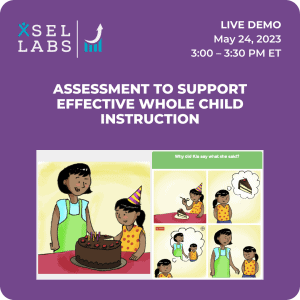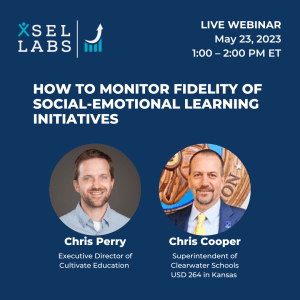By Move This World
Sara LaHayne is the Founder & CEO of Move This World, a social-emotional learning program that provides PreK-12 students, educators, and families with multimedia experiences empowering students to navigate the rapidly-changing realities of their world – both in the classroom and throughout their lives. Through evidence-based, developmentally appropriate content rooted in creative expression and participatory movement, Move This World ritualizes a daily practice of identifying, expressing, and managing emotions. A life-long dancer and former professional performer, Sara LaHayne authored, implemented, and evaluated the original Move This World curriculum fourteen years ago as a Fulbright Scholar in Bogotá, Colombia.
Relationships Don’t Happen Overnight.
Sometimes, it can be easy to misconstrue authentic, healthy, and strong classroom relationships with good classroom management. For example, teachers may think they have a great relationship with students because their classes behave, follow the rules, and stay on task. But relationships require so much more than classroom management! Strong relationships in a classroom, whether student-student or student-teacher, invite vulnerability, reflection, and respect. Students are comfortable asking for help, receiving help, and helping others. Students feel supported to move through mistakes and celebrate successes together. While classroom management is critical, healthy relationships in the classroom can deepen learning.
Relationships don’t just happen because students share a room or because the teacher’s classroom practices foster kindness and rule-following. Relationships are built over time, and the skills to develop great relationships are learned. We recently spoke with Alex Armor, Counselor at Mangum Elementary School in Durham Public Schools, to learn how they build relationship skills through social-emotional learning practice with Move This World. Social-emotional learning allows the school community to build a foundation of empathy, understanding, and communication.
Building Relationships with SEL
Healthy relationships are built from empathy, respect for others, communication, teamwork, and practical problem-solving. Social-emotional practices support growth in these areas by giving students and adults the opportunity to intentionally reflect on their feelings, engage with peers, learn communication skills, and practice perspective-taking.
Students who learn to empathize with the different experiences of those around them are more respectful, supportive, and connected to their peers, and when mutual understanding and empathy exist and the diversity of a classroom and school is celebrated and lifted, it creates a culture of respect, compassion, and appreciation. These are the kinds of classroom environments that allow learning to thrive.
The following are three ways to help educators and students practice building relationships and nurture more robust relationships.
1. Appreciation Circles
“If a teacher could incorporate one SEL practice into their day, I would recommend an appreciation circle,” says Alex. Reserve 5 minutes of time for students to share what they appreciate about each other, their classroom, or their school. Not only does this make students feel good, it encourages a pattern of pro-social behaviors in the classroom. Students will feel seen and heard, supported, connected, and cared for. Doing this at the beginning of the day sets the tone for the next seven hours, encourages unity and togetherness, and fosters a sense of belonging in students.
2. Heart Talk
Communicating can be tricky, even more so when big feelings are involved. The potential for hurt can feel overwhelming, and it becomes easy for miscommunications to occur. Alex explains, “Teaching students how to respectfully and honestly express their feelings and their needs to a peer remains one of the most important SEL strategies in my counseling practice.” Whether you call it an “I statement” or “Heart Talk” or something else, giving students the tools to express themselves in a safe way is so important.
3. Put Yourself in Someone Else’s Shoes
Alex shares, “Another practice that I use all the time is helping students understand the perspective of others by putting themselves in someone else’s shoes. We practice this often since it’s one of Move This World’s Emogers (emotion managers), and students learn a rhythmic movement to help them remember it. I teach empathy and perspective-taking by presenting different scenarios and encouraging students to share their emotional, cognitive, and behavioral responses.” The diversity of feelings and responses that come from these exercises builds respect and mutual understanding in the classroom.
Again, relationships take time and effort to build, but strong classroom relationships create an environment where all students can learn and thrive. Students need a variety of social-emotional skills to develop and maintain strong, healthy relationships – not just in the classroom but throughout their lives. Learning how to recognize their feelings, how to manage big emotions, express their feelings and needs in healthy ways, and how to communicate and empathize with others are skills that can be practiced throughout their PreK-12 years so they can have supportive relationships throughout their lives.
Learn about how Move This World aligns with xSEL Labs’ social and emotional competence measures.



